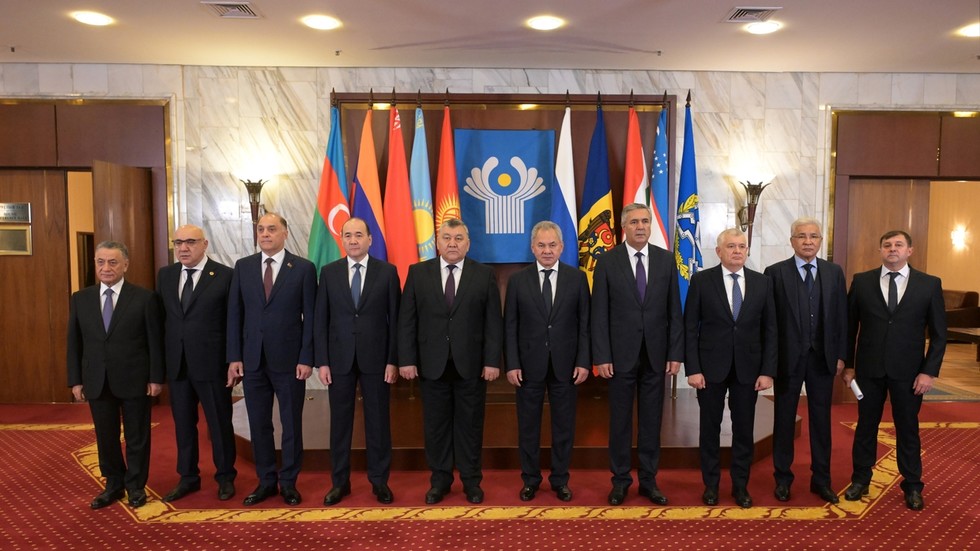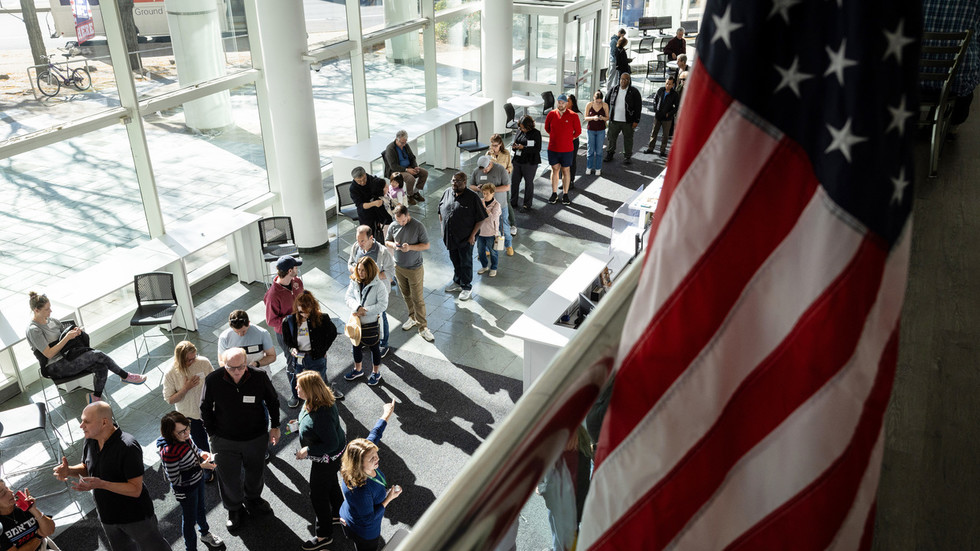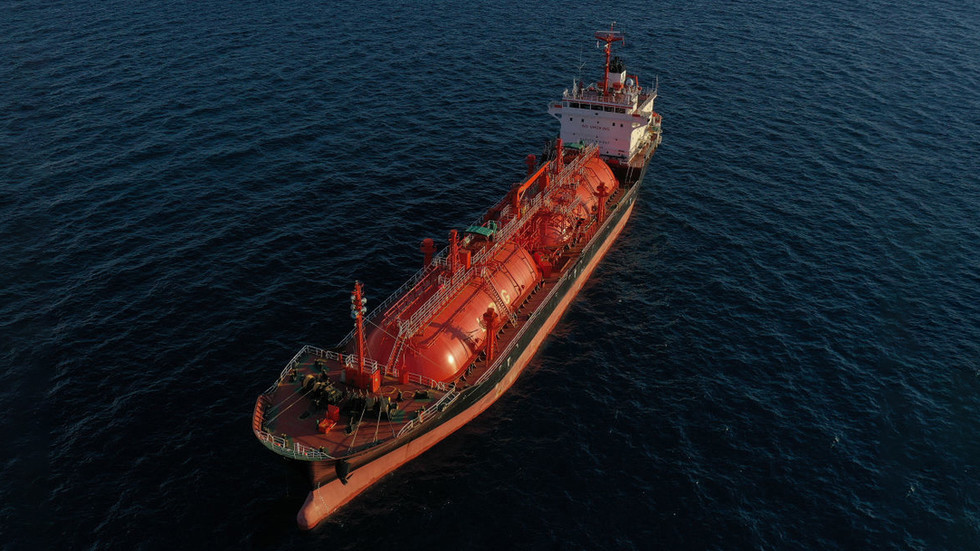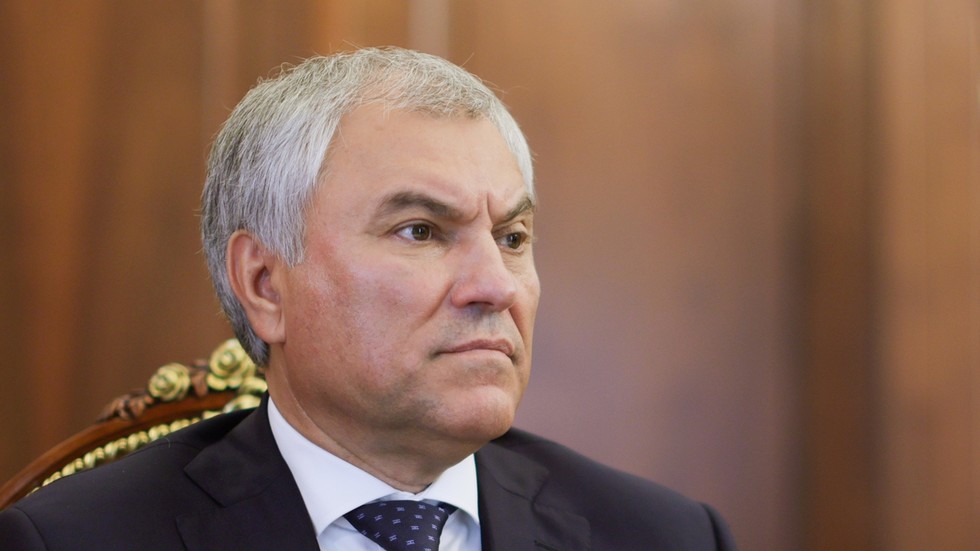Vistisen exclusively tells Euronews there is “no more political divide” between Meloni and Le Pen’s political factions than there is within other mainstream political groups.
The man who has been fronting the far-right Identity and Democracy’s European elections campaign is confident that the European Parliament's two most right-wing factions will join to form a united bloc during the upcoming legislature.
In an interview on Tuesday, Anders Vistisen told Euronews he believes there is no substantial political rift between his Identity and Democracy (ID) party - which harbours Marine Le Pen’s Rassemblement National, Italy’s Lega and Germany’s Alternative für Deutschland (AfD) - and the nationalist European Reformists and Conservatives (ECR), considered slightly less hard-line than their ID counterparts.
ECR includes the likes of Spain's Vox and Poland's Law and Justice (PiS). It also includes Italian Prime Minister Giorgia Meloni's Fratelli d’Italia and Czech Prime Minister Petr Fiala's Civil Democratic Party (ODS), both of whom have controversially been touted as potential partners for Ursula von der Leyen’s centre-right EPP following June’s ballot, in a sign the firewall that has traditionally cordoned off far-right parties will be torn down.
“What is in my opinion wrong is that you have two groups to the right, and I think that has more to do (more) with big personalities in some of the bigger parties than it has to do with political differences,” Vistisen, who hails from the far-right Danish People's Party, told Euronews.
“There is no more political divide between the ID and the ECR, than what you can see within the EPP, the S&D or the Renew parties, for instance.”
Asked whether he believes both groups could form a united bloc in the European Parliament, Vistisen replied: “I think we will see that someday (...) I think maybe not just after this election, but I think the French presidential elections that are coming up in a couple of years (in 2027) could be a point in time that is very interesting to look forward to.”
Vistisen spoke just hours before a crisis erupted in his party, as Marine Le Pen's Rassemblement National indicated they would no longer sit with Alternative for Germany (AfD) in the European Parliament over damning Nazi comments made by AfD's lead election candidate Maximilian Krah, prompting Krah's sudden resignation from the party's federal executive board.
After speaking to Euronews, Vistisen said on social media platform X that Krah, who will continue to be the AfD's lead candidate in June's ballot, had "shown with his statements and actions that he does not belong in the ID group."
"If the AfD does not take advantage of the situation and get rid of Krah, the DF's (Danish People's Party) position is that the AfD must leave the ID group," Vistisen added.
But when pressed by Euronews hours earlier about whether deep divisions within his ID party and mounting dissatisfaction with AfD's increasingly extremist stances could prompt member parties to seek to move across to the ECR group, Vistisen defended his party's unity.
"No, I don't really see that. I think it's a bit of a false narrative put out there," he said.
Vistisen claimed deeper divisions can be seen in the competing hard-right ECR group, especially when it comes to their stance on Ukraine, adding that Poland's PiS - who staunchly back unhindered EU support to Ukraine - had invited both Rassemblement National and Hungarian premier Viktor Orbán into their European party despite their scepticism towards military support to Ukraine.
A source from Rassemblement National told Euronews that Le Pen's party favours joining the same group as Viktor Orbán's Fidesz, which currently does not belong to any European political group after it was forced to quit the centre-right EPP in 2021.
Vistisen 'not paid' by sanctioned Voice of Europe
The latest debacle follows multiple controversies surrounding AfD that have ruffled feathers in the ID party. In January, senior AfD figures were reported to have met with neo-Nazi groups to discuss plans to deport millions of immigrants, including some with German citizenship, prompting discomfort within their European family according to Euronews sources.
The two names topping the AfD's electoral lists for June's elections are also connected to ongoing investigations into foreign interference within the European Parliament, including an alleged pro-Kremlin operation suspected of paying sitting MEPs to spread Russian propaganda.
The aide of Maximilian Krah was arrested last month on suspicion of spying for China, while Petr Bystron is accused of receiving as much as €20,000 in cash from Russia, as part of a sprawling investigation into a suspected pro-Kremlin influence operation.
Vistisen admitted he is "always concerned about outside influence," and vowed that should investigations find candidates guilty and the AfD failed to suspend their membership, then his European party's bureau would take the matter into their own hands.
But he defended the decision not to take immediate action in response to the damaging allegations of foreign interference within his party.
"Mr. Krah was through the ethics body of the European Parliament, and they didn't recommend one of the sanctions available to them," Vistisen claimed.
"So if his political opponents didn't recommend a sanction, it's very difficult for us as a political group to sanction on this background, but I'm very glad that the AfD already stipulated that if these allegations have truth to them, then they single-handedly would suspend his membership of the AfD and thereby he would not be a member of the ID group either."
The company at the heart of the investigation, led by the Belgian prosecutor, is Voice of Europe, now blacklisted in the European Union.
Asked whether he was paid for a one-on-one interview he gave to Voice of Europe earlier this year, Vistisen emphatically denied.
"No, of course not. That interview was set up at the same premise as this interview. I was asked to give an interview and I obliged. That's my job as a politician," Vistisen responded.
" I have an impeccable record when it comes to being firm on Russia, firm on China. Has nobody ever doubted that? So, sometimes these allegations are, of course, also used politically (...) I think you can easily be your to without spreading fake news."
Lack of EU support leaves Ukraine without a 'fighting chance'
Vistisen also sharply criticised the European Union for what he called its failure to "step up to the plate" when providing Kyiv with the military aid and equipment it needs to withstand Russia's invasion.
"I would challenge the perception that Europe has been very pro-Ukrainian," he explained.
"When it comes to concrete action, it lags behind. So no, if the Americans were not in it to help the Ukrainians, the war would be lost for them because Europe has not stepped up to the plate," he added.
"I think if Ukraine should have a fighting chance to push back Russia, through the borders from before the Russian invasion of Crimea, the military aid is falling far too short and far too late, unfortunately."
He also claimed that the EU had committed less military support to Ukraine than the United Kingdom, despite the bloc's military aid amounting to a staggering €33 billion, compared to the UK's £7.6 billion (€8.9 billion) in military assistance.
He nonetheless spurned the prospect of Ukraine joining the bloc as a full-fledged member state, claiming that EU leaders were trying to impose timelines to fast-track Kyiv's accession.
"It's the same forces that are complaining about rule of law in Hungary (...) who are now saying let's speed up a procedure where we are letting countries in with a far worse track record when it comes to a lot of these benchmarks than what you have seen in Orbán's Hungary," Vistisen claimed.

 5 months ago
21
5 months ago
21









